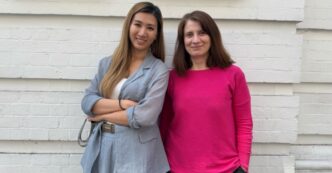Phoebe Gates, the youngest daughter of Melinda and Bill Gates, is stepping into the entrepreneurial world on her own terms. Despite being the child of one of the world’s most famous billionaires, she launched her startup, Phia, without relying on her father’s money.
In an interview with The New York Times, Bill Gates admitted he expected Phoebe to ask for help. “I thought, ‘Oh boy, she’s going to come and ask,’” he said. He was ready to support her if needed, but doing so would have come with tight oversight. “I would have kept her on a short leash,” he said. “It would have been tricky.”
Instead, Phoebe went her own way. And her father is glad. “Luckily, it never happened,” he added.
Building Phia Without a Billionaire’s Wallet
Phia, launched on April 24, is a shopping platform that compares prices across more than 40,000 fashion websites. It’s designed to help users—especially young women—find the best deals on clothing. The idea grew out of personal experience. “We’re roommates fighting about clothing,” Phoebe told The Times. “We are the girls who are scouring shopping sites for deals. And there are, frankly, thousands of other young women like us.”
Phoebe co-founded Phia with Sofia Kianni, her former Stanford roommate and now business partner. The pair hosts a podcast together called The Burnouts, where they openly discuss business, climate change, and navigating the startup world as Gen Z women.
While Phia has secured over $500,000 in funding from venture capital and angel investors, none of that money came from Bill Gates. Phoebe said her father was initially hesitant about her plans to launch a company. “I remember me wanting to start the company and him being like, ‘Are you sure you want to do this?’” she recalled on their podcast.
And unlike her dad—who famously dropped out of Harvard to launch Microsoft—Phoebe was not allowed to skip college. She graduated from Stanford University in 2024 with a degree in human biology, finishing the program in just three years. “They were very much like, ‘You need to finish your degree; you don’t just get to like, drop out and do a company,’” Phoebe said. “Which is so funny because my dad literally did that.”
Despite her efforts to succeed on her own, Phoebe is well aware of how people perceive her. “If the business is successful, people will say, ‘It’s because of her family,’” she said. “And a huge portion of that is true.”
She’s honest about the advantages she’s had. “I never would have been able to go to Stanford, or have such an amazing upbringing, or feel the drive to do something, if it wasn’t for my parents. But I also feel a huge amount of internalized pressure.”
Redefining the “Nepo Baby” Label
During her early days at Stanford, Phoebe said she often felt like a “nepo baby”—a term used to describe children of famous or wealthy parents who benefit from their family’s status. But she’s working hard to prove she can stand on her own.
So far, she and Kianni are making strides. With a business idea rooted in real-world habits and a relatable brand voice, they are tapping into a massive online shopping market led by Gen Z. Their app isn’t just a deal finder—it’s a platform built by young women, for young women, aiming to make fashion smarter, cheaper, and more fun.
Phoebe’s decision to pursue entrepreneurship without leaning on her father’s money or influence is rare among children of billionaires. Bill Gates has long said he plans to leave only 1% of his fortune to each of his kids, which still amounts to millions—but the message has always been about independence.
With Phia, Phoebe Gates is showing that she’s ready to build something of her own, even while navigating the shadow of one of the world’s most famous last names.













